Seaport
° Andaman and Nicobar Islands ° Bengal ° Bombay (Mumbai) ° Calcutta ° Cawnpore ° Delhi ° Gujarat ° Indore ° Jodhpur ° The Konkan Coast (Goa) ° Madras (now Chennai) ° Patna (Bihar) ° Tellicherry ° Varkala
International Harbors
The Fortunes of Africa: A 5000-Year History of Wealth, Greed, and Endeavor
Africa has been coveted for its riches ever since the era of the Pharaohs. In past centuries, it was the lure of gold, ivory, and slaves that drew fortune-seekers, merchant-adventurers, and conquerors from afar. In modern times, the focus of attention is on oil, diamonds, and other valuable minerals. He traces the rise and fall of ancient kingdoms and empires; the spread of Christianity and Islam; the enduring quest for gold and other riches; the exploits of explorers and missionaries; and the impact of European colonization.
The Diary of Antera Duke: An Eighteenth-Century African Slave Trader
Stephen D. Behrendt, A. J. H. Lathma, David Northrup
In his diary, Antera Duke (ca.1735-ca.1809) wrote an eyewitness account of the slave trade by an African merchant. A leader in late eighteenth-century Old Calabar, a cluster of Efik-speaking communities in the Cross River region, he resided in Duke Town, forty-five miles from the Atlantic Ocean in what is now southeast Nigeria. His diary, written in trade English from 1785 to 1788, is a candid account of daily life in an African community at the height of Calabar's overseas commerce. It provides valuable information on economic activity with other African businessmen and with European ship captains who arrived to trade for slaves, produce, and provisions.
Basil Davidson states that by examining three important areas of Africa in the history of slavery against a general background of their time and circumstance he was taking "a fresh look at the overseas slave trade, the steady year-by-year export of African labour to the West Indies and the Americas that marked the era of forced migration." (Africans were joined in forced camps by abused laborers from China, "indentured servants" from Ireland, and Britain's hideous prison hulks.)
The Middle Passage: White Ships/Black Cargo
Tom Feelings
Alex Haley's Roots awakened many Americans to the cruelty of slavery. The Middle Passage focuses attention on the torturous journey which brought slaves from Africa to the Americas, allowing readers to bear witness to the sufferings of an entire people. 64 paintings.
The Counter-Revolution of 1776: Slave Resistance and the Origins of the United States of America
Gerald Home
The successful 1776 revolt against British rule in North America has been hailed almost universally as a great step forward for humanity. But the Africans then residing in the colonies overwhelmingly sided with London. Gerald Horne complements his earlier celebrated Negro Comrades of the Crown, by showing that in the prelude to 1776, the abolition of slavery seemed all but inevitable in London, delighting Africans as much as it outraged slaveholders, and sparking the colonial revolt.
Middle Passages: African American Journeys to Africa, 1787-2005
James T. Campbell
Many works of history deal with the journeys of blacks in bondage from Africa to the United States along the middle passage, but there is also a rich history of African Americans traveling in the opposite direction. In Middle Passages, award-winning historian James T. Campbell recounts more than two centuries of African American journeys to Africa, including the experiences of such extraordinary figures as Langston Hughes, W.E.B. DuBois, Richard Wright, Malcolm X, and Maya Angelou. This series is under presiding editor Arthur Schlesinger, Jr.
Portuguese explorers established contacts with Liberia as early as 1461 and named the area Grain Coast because of the abundance of "grains of paradise" (Malegueta pepper seeds). In 1663 the British installed trading posts on the Grain Coast, but the Dutch destroyed these posts a year later. There were no further reports of European settlements along the Grain Coast until the arrival of freed slaves in the early 1800s. Liberia, "land of the free," was founded by free African-Americans and freed slaves from the United States in 1820.
|
By the dawn of the 19th century, many American states within the Union were considered slavery-free states, and slaves from below the infamous Mason-Dixon Line risked their lives to reach this new Promise Land. But with few skills and no education, ex-slaves found themselves living in poverty in the large cities and contributing to a swelling black underclass.
Conservative white Americans lambasted these masses of freed slaves as instigators of class revolution that would abolish slavery forever. Liberals decried the ex-slaves' deplorable living conditions. African-Americans simply wondered what freedom really meant in a country that always considered them third-class citizens. But all three groups longed for a solution to what appeared an intractable situation a growing number of freed slaves unable to effectively integrate into 19th-century American society.
The idea of ‘repatriating’ African-Americans to Africa originated with Robert Finley, a white Presbyterian minister from New Jersey. Finley felt that freed slaves in America had little hope of integrating into society and would be able to improve their lot by returning to their homelands. Although Finley’s motives were primarily charitable, pro-slavery conservatives eager to exile black revolutionaries agreed with him. The result was the establishment of the American Colonization Society -- an organization tasked with handling the emigration.
|
The Society’s first president was Bushrod Washington (nephew to President Washington). Other prominent officers and members included Henry Clay, Francis Scott Key, James Monroe and Daniel Webster. Leading African-Americans thoroughly disenchanted with America, such as Absalom Jones and Richard Allen, also became leading members. A majority of freed slaves, however, did not approve of the emigration scheme, arguing that they were fully American and had a duty to fight for those still enslaved.
An initial group of 86 immigrants, who came to be called Americo-Liberians, established a settlement in Christopolis (now Monrovia, named after U.S. President James Monroe) on February 6, 1820.
Thousands of freed American slaves and free African-Americans arrived during the following years, leading to the formation of more settlements and culminating in a declaration of independence of the Republic of Liberia on July 26, 1847. The drive to resettle freed slaves in Africa was promoted by the American Colonization Society (ACS), an organization of white clergymen, abolitionists, and slave owners founded in 1816 by Robert Finley, a Presbyterian minister. Between 1821 and 1867 the ACS resettled some 10,000 African-Americans and several thousand Africans from interdicted slave ships; it governed the Commonwealth of Liberia until independence in 1847.
The American Colonization Society raised funds for its venture through membership subscriptions, but also won backing from the US Congress.
The first ship, the Elizabeth, sailed in 1816 with eight-eight voluntary emigrants, three white company officials, and supplies. The ship landed off the coast of Liberia where the new immigrants immediately began to construct their new settlement. But after three weeks, twenty-two African-Americans and all three white officials died of yellow fever. The second ship, the Nautilus, soon arrived with new passengers and fresh supplies (www.pbs.org; "Africans in America: Brotherly Love Part III 1791-1831). The land occupied by the American Colonization Society in Liberia was not void of native inhabitants when the emigrants arrived. Much of the area was under the control of the Malinke tribes who resented the expansion of these settlers. In addition to disease, poor housing conditions and lack of food and medicine, these new emigrants were also forced into armed combat with the natives.
Oakland Tribune, Oakland, California
July 1, 1895
WANTED TO BE MARINERS
A Colored Proposition That Came to Grief
By Associated Press to The Tribune
DENVER, Col., July 1. The Rev. D. E. Johnson, pastor of the Church of the Redeemer, announced last night to his congregation that the Afro-American Steamship Company had gone into liquidations and that subscribers to the fund for a steamship line to Liberia could have their money returned on application.
"The same course," he said, "would be adopted wherever there were subscribers."
Coloured Refugees from Arkansas awaiting transportation to LiberiaThe scheme was sprung over two years ago and caught the fancy of the colored race, who were assured that they could command the respect of the world if they obtained a footing on the seas.
Mr. Johnson now says that the trade has been monopolized by white men.
There is no way of estimating the amount deposited by the ambitious Afro-Americans, and it is said there is little hope of the fund being restored out the subscribers in out-of-the-way places.
Africa: Liberia
1899. World's Fleet. Boston Daily Globe
Lloyds Register of Shipping gives the entire fleet of the world as 28,180 steamers and sailing vessels, with a total tonnage of 27,673,628, of which 39 perent are British.
| Great Britain | 10,990 vessels, total tonnage of 10,792,714 |
| United States | 3,010 vessels, total tonnage of 2,405,887 |
| Norway | 2,528 vessels, tonnage of 1,604,230 |
| Germany | 1,676 vessels, with a tonnage of 2,453,334, in which are included her particularly large ships. |
| Sweden | 1,408 vessels with a tonnage of 643, 527 |
| Italy | 1,150 vessels |
| France | 1,182 vessels |
For Historical Comparison
Top 10 Maritime Nations Ranked by Value (2017)
| Country | # of Vessels | Gross Tonnage (m) |
Total Value (USDbn) |
|
|---|---|---|---|---|
| 1 | Greece | 4,453 | 206.47 | $88.0 |
| 2 | Japan | 4,317 | 150.26 | $79.8 |
| 3 | China | 4,938 | 159.71 | $71.7 |
| 4 | USA | 2,399 | 55.92 | $46.5 |
| 5 | Singapore | 2,662 | 64.03 | $41.7 |
| 6 | Norway | 1,668 | 39.68 | $41.1 |
| 7 | Germany | 2,923 | 81.17 | $30.3 |
| 8 | UK | 883 | 28.78 | $24.3 |
| 9 | Denmark | 1,040 | 36.17 | $23.4 |
| 10 | South Korea | 1,484 | 49.88 | $20.1 |
| Total | 26,767 | 87.21 | $466.9 | |


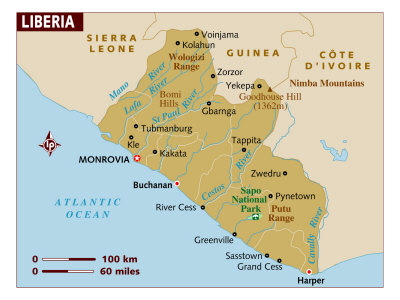
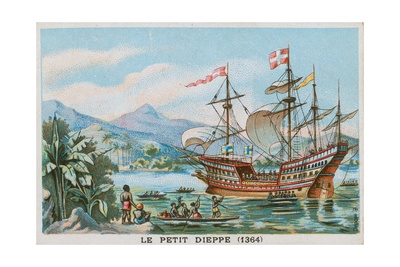
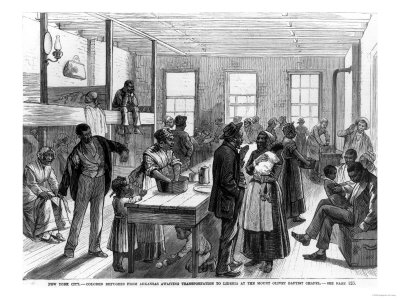

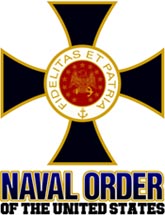

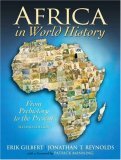



 Copyright ~ 1998-2018.
Copyright ~ 1998-2018. 